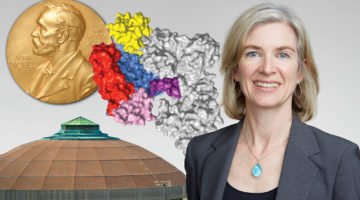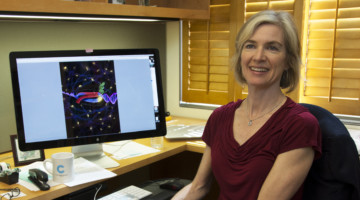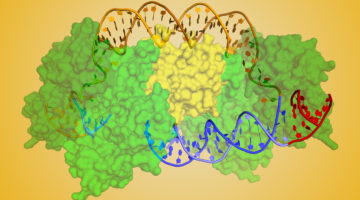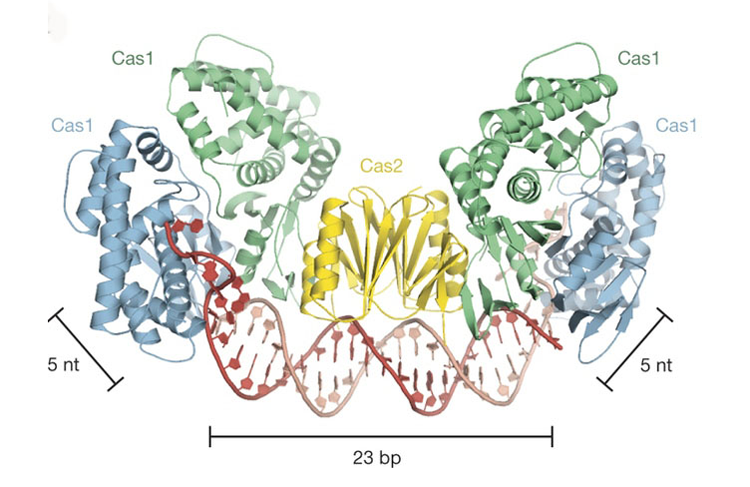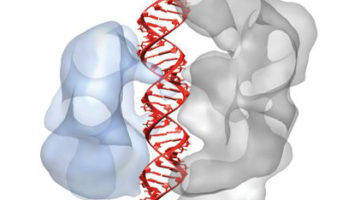The 2020 Nobel Prize in Chemistry was awarded to Jennifer Doudna and Emmanuelle Charpentier for the development of a world-changing gene-editing technology. At the ALS, Doudna’s work on CRISPR-Cas9 was enabled by many visionary people with innovative ideas, implemented in support of a world-class structural biology program. Read more »![]()
ALS Publications by Jennifer Doudna
Compilation of all publications with 2020 Chemistry Nobel Laureate Jennifer Doudna as co-author which used the resources of the Advanced Light Source.
The CRISPR Target-Recognition Mechanism
CRISPR-associated (Cas) proteins have revolutionized gene editing by vastly simplifying the insertion of short snippets of new (“donor”) DNA into very specific locations of target DNA. Now, researchers have discovered how the Cas proteins are able to recognize the target locations with such great specificity. Read more »![]()
![]()
Foreign DNA Capture during CRISPR–Cas Adaptive Immunity
Using macromolecular crystallography at Beamline 8.3.1 at the ALS, Berkeley researchers discovered how CRISPR/Cas captures foreign DNA for the bacterial immune system. Read more »
Caribou Biosciences Has Roots at the ALS
When Rachel Haurwitz joined UC Berkeley biology professor Jennifer Doudna’s lab in 2007 as a graduate student, little did the two women know that the interesting bacterial immune system they were studying would be the subject of news headlines and the basis for a biotech startup just a few years later.
Intriguing DNA Editor Has a Structural Trigger
The molecular structures of two proteins from a family of genome-editing enzymes reveal how they target and cleave DNA. The results point the way to the rational design of new and improved versions of the enzymes for basic research and genetic engineering. Read more »![]()
![]()
